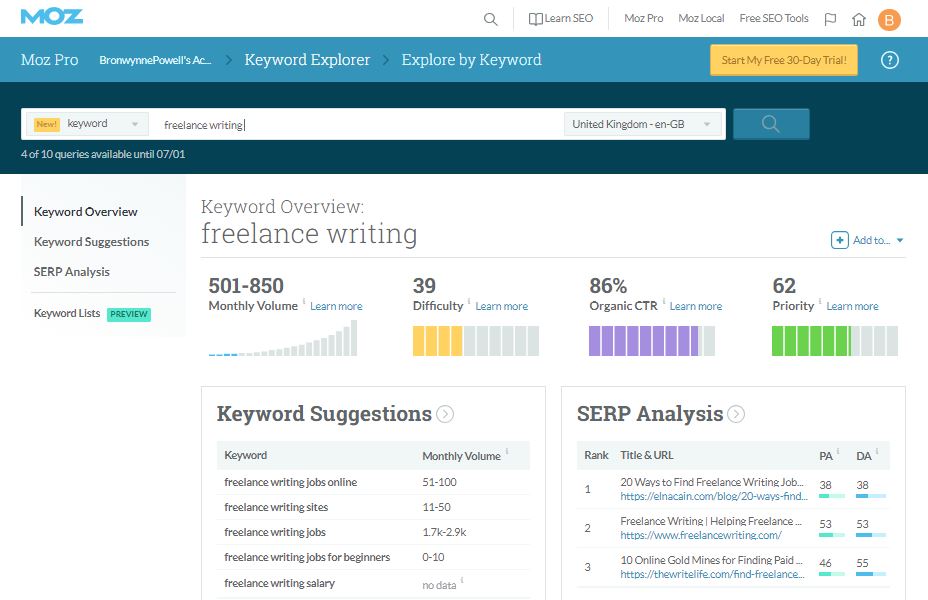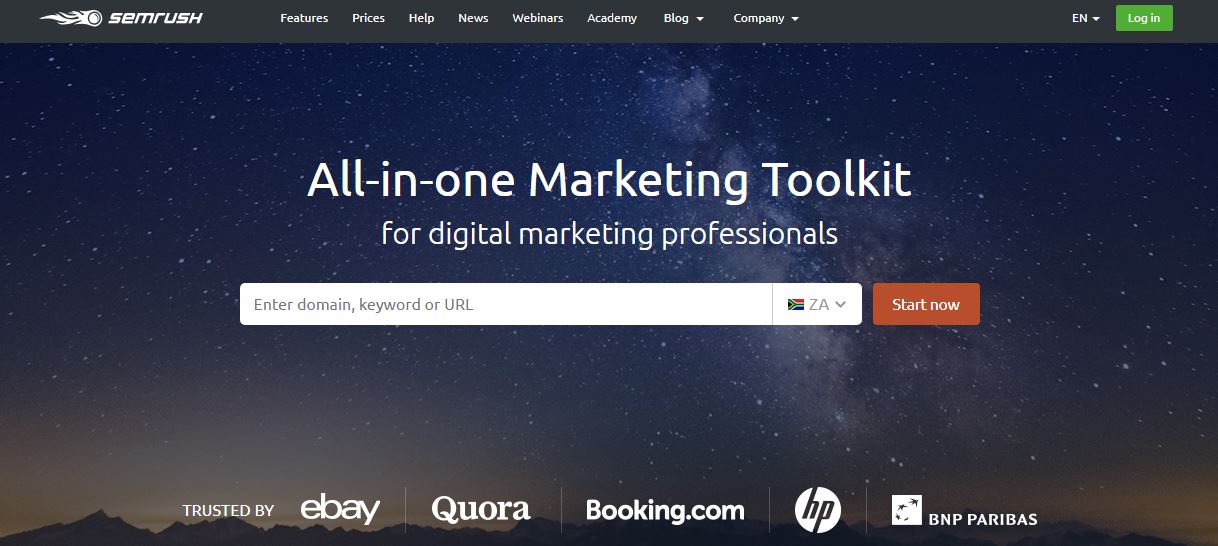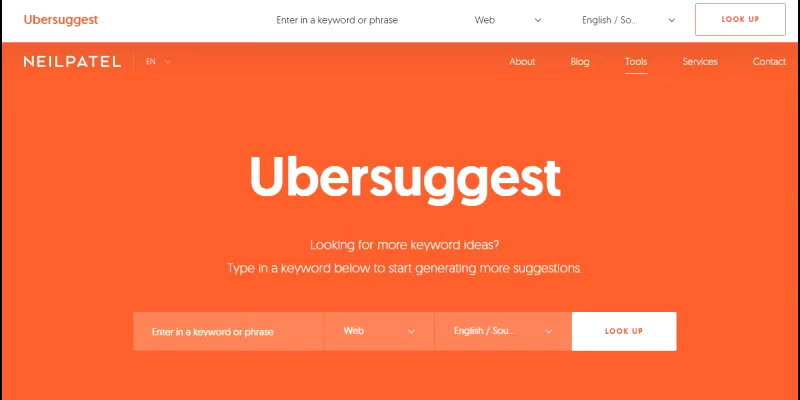If you’re a freelancer or small business who’s just started blogging, you’ve probably heard about SEO.
The experts tell you if you don’t put search engine optimisation in place, only your mom will be reading your blog (I mean your mom should be your most loyal reader NOT your only reader).
There’s 3 billion online searches each day. Depending on your product or service, the world wide web offers an international audience. But you’re also competing with the millions of websites created each year.
SEO is an important part of your small business marketing strategy.
But if you have no background in online search it’s easy to feel overwhelmed.
Where do you begin?
If you can afford it, hire an expert. Investing in SEO and featuring on online search is a great way to connect with new potential clients.
What about if you’re just starting out? Maybe you don’t have a massive marketing budget just yet?
Fortunately, there’s a several free online resources you can use to find keywords, find high-ranking content and even become an SEO expert by learning from the best in the industry. I’m not nearly an expert – or even a novice – but after experimenting with some of these resources, I’ve gained a basic understanding of SEO.
For freelance writers specifically, these resources can also help with article research.
1. Moz
Moz is the place to start if you’d like to learn more about using SEO to promote your small business.
They have an amazing blog, and if you spend a few hours one day browsing through the content, you’ll end with a decent, basic understanding of SEO. The articles include valuable and practical small business marketing tips.
Moz has also produced one of the most downloaded guides on SEO: The Beginners Guide to SEO. It has a great section you can reference for how to optimise individual pages for SEO.
The founder of Moz, Rand Fishkin, also put together easy to follow videos on key SEO aspects. Udemy bundled it into a free course. It’s worth your while to check it out.
But the really great thing about Moz? Free access to their keyword explorer. All you have to do is create an account and you’ll get 20 free enquiries.
Moz’s keyword explorer does cool things like:
- Keyword suggestions
- Identifies sites that are ranking for those keywords

It’s incredibly easy to use. There’s detailed and simple explanations for each of the SEO indicators in the tool.
2. SEMrush
Like Moz, SEMrush provides keyword suggestions and the search engine results page. You get 10 free queries for the month, so between Moz and SEMrush you have 30 free queries each month.

3. Buzzsumo
Buzzsumo is less of a SEO tool, and more a content generation tool. When you enter a term, it shows you the most shared articles for that term, and which platforms feature the most shares. I’ve spoken about Buzzsumo before here, and I turn to it often when I’m researching. I think this is an especially valuable freelance writing tips, whether you’re writing for yourself or a client. Studying the most shared content is a good practice. When you add Buzzsumo to your small business marketing strategy, you can analyse winning content and learn more about your target audience too.

4. Yoast
This one’s for WordPress users. The Yoast SEO plugin will flag SEO issues with you for each post, eg. focus keyword not mentioned. It also generates a meta description for you (a snippet of your page’s content).
Search engines sometimes use the meta descriptions to show visitors more about a page’s content.
As someone with only very basic SEO experience, it’s great to have a free tool to immediately help me improve on-page SEO.
5. Ubersuggest
If you’re started reading about small business marketing tips, you’ve come across keyword research. Keyword research is the exercise of identifying the keywords your potential clients are using during their online search. If you know these keywords, you’re a step closer towards improving the marketing strategy for your small business. For freelancer writers, this mean including these keywords in your freelance writer website.
One of my absolute favourite keyword research tools is Ubersuggest, recently bought by Neil Patel (one of my marketing heroes and we’ll discuss one of his most ambitious projects next).
Ubersuggest probably the easiest user interface for keyword research. There’s no need to create an account or login. There’s no limit to the searches. And unlike other tools that blank out some of the more detailed results in the free version, Ubersuggest shows you EVERYTHING:
- Keyword search volume
- Suggestions and their search volumes
- Cost per click stats
6. AHREFS
AHREFS is a free and paid SEO tool.
AHREFS is one of my favourite SEO tools because it’s user-friendly and comprehensive.
It will provide you with keyword difficulty and estimated search volume.
The free version will show your website’s:
- Domain authority
- Organic keywords
- Organic traffic
- Backlinks
The paid plans start at $US99 per month, but you can also take a 7-day trial for $US8. During this time, you’ll be able to access AHREFS Keywords Explorer. You’ll easily be able to generate a year’s worth of ideas using AHREFS for a week.
The company also offers solid SEO education. I’ve learned so much about search engine optimization from its free Blogging for Business course.
Conclusion
If you know very little about SEO, these resources will give a good start to wrapping your head around ranking in search engines. A good approach to keep in mind, and one I first read about in this Copyblogger blog is to put your readers at the center of every single piece of content you write. Once you do this, you’re on your way to putting together valuable content that’s visible to your target audience.

